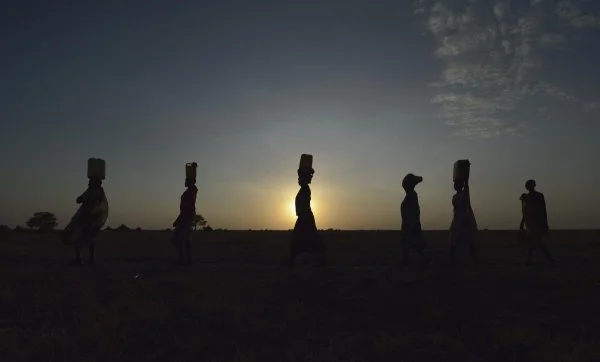- Français
- |
- Booklist
- |
- Week of Prayer
- |
- Links
- Areopagus - a forum for dialogue
- Academic journals
- Acronyms
- Bible tools
- Bibliographies
- Booksellers and publishers
- Churches
- Canadian church headquarters
- Directory of Saskatchewan churches
- Retreat centres
- Saskatchewan church and non-profit agencies
- Ecumenism.net Denominational links
- Anabaptist & Mennonite
- Anglican
- Baptist
- Evangelical
- Independent episcopal
- Lutheran
- Methodist, Wesleyan, and Holiness
- Miscellaneous
- Mormon
- Orthodox (Eastern & Oriental)
- Para-church ministries
- Pentecostal / charismatic
- Presbyterian & Reformed
- Quaker (Society of Friends)
- Roman & Eastern Catholic
- United and uniting
- Documents of Ecumenical Interest
- Ecumenical agencies
- Ecumenical Booklist
- Ecumenical Dialogues
- Glossary
- Human rights
- Inter-religious links
- Justice & peace
- Lectionaries
- Religious news services
- Resource pages
- Search Ecumenism.Net
- |
- Documents
- Ancient & Medieval texts
- Ecumenical Dialogues
- Interreligious
- Anabaptist & Mennonite
- Anglican
- Evangelical
- Lutheran
- Orthodox
- Reformed & Presbyterian
- Roman & Eastern Catholic
- United & Uniting
- Miscellaneous churches
- Canadian Council of Churches (CCC)
- Conference of European Churches (CEC)
- Interchurch Families International Network (IFIN)
- National Council of Churches in Australia (NCCA)
- Lausanne Committee for World Evangelism (LCWE)
- World Council of Churches (WCC)
- Other ecumenical documents
Church traditions
Documents from ecumenical agencies
- |
- Dialogues
- Adventist-Reformed
- African Instituted Churches-Reformed
- Anglican-Lutheran
- Anglican-Orthodox
- Anglican-Reformed
- Anglican-Roman Catholic
- Anglican-United/Uniting
- Baptist-Reformed
- Disciples of Christ-Reformed
- Disciples of Christ-Roman Catholic
- Evangelical-Roman Catholic
- Lutheran-Mennonite
- Lutheran-Mennonite-Roman Catholic
- Lutheran-Reformed
- Lutheran-Roman Catholic
- Mennonite-Reformed
- Mennonite-Roman Catholic
- Methodist-Reformed
- Methodist-Roman Catholic
- Oriental Orthodox-Reformed
- Orthodox-Reformed
- Orthodox-Roman Catholic
- Pentecostal-Reformed
- Prague Consultations
- REC-WARC Consultations
- Roman Catholic-Lutheran-Reformed
- Roman Catholic-Reformed
- Roman Catholic-United Church of Canada
- |
- Quick links
- Canadian Centre for Ecumenism
- Canadian Council of Churches
- Ecumenical Shared Ministries
- Ecumenism in Canada
- Interchurch Families International Network
- International Anglican-Roman Catholic Commission for Unity and Mission
- Kairos: Canadian Ecumenical Justice Initiatives
- North American Academy of Ecumenists
- Prairie Centre for Ecumenism
- Réseau œcuménique justice et paix
- Week of Prayer for Christian Unity
- Women's Interchurch Council of Canada
- World Council of Churches
- |
- Archives
- |
- About us
Care for Creation: Decades of ecumenical advocacy
— Sept. 1, 20221 sept. 2022September 1 marks the beginning of the Season of Creation, five weeks in the liturgical calendar recognized by the fellowship of the World Council of Churches (WCC) and, since 2015, by the Catholic Church. It is an especially religious demonstration of concern for the planet and for threats to the survival of Earth as we know it.
The agenda of WCC assembly events on September 1 also highlights the WCC’s emphasis on Climate Justice. In an interview prior to the Assembly, Rev. Prof Dr Ioan Sauca, WCC acting general secretary, explained that the climate “is a theological issue. God’s plan in Christ was also the reconciliation and healing of the whole creation.”
Throughout the 1960s and 1970s, scientific research, nonfiction publications and public hearings brought an unprecedented focus on the range of ecological questions confronting the natural environment. For the global ecumenical movement, two transformational events brought matters of “stewardship” and care for God’s creation to centre-stage.
In 1974, the World Council of Churches organized a conference on Science and Technology for Human Development where it was recognized that the common approach to “development” around the world was dangerous without an accompanying concern for sustainability and justice. A second conference was held in 1979 at the Massachusetts Institute of Technology dealing with Science, Faith and the Future. The materials produced and press coverage received from these events raised the consciousness of people in WCC member churches.
Lukas Vischer, who was stepping down as director of Faith and Order in 1979, was particularly active in ecumenical circles, promoting a theological and ethical commitment to God’s creation. In a tribute published at the time of Vischer’s death, WCC general secretary Samuel Kobia wrote that the WCC was “grateful for his strong commitment to God’s suffering creation during the time of the Conciliar Process for Justice, Peace and the Integrity of Creation that followed the 1983 Vancouver Assembly and culminated in a World Convocation in 1990 in Seoul.”
In 1989, the late Ecumenical Patriarch Dimitros I proclaimed the first of September as the Orthodox Day of Prayer for Creation. Subsequently, the WCC extended the period of prayer and action until the feast day of Saint Francis of Assisi, 4 October. In 2015, Pope Francis (who had adopted his papal name in honour of Francis of Assisi) endorsed the Season of Creation as a practice of the Catholic Church.
In his interview, Sauca observed that the WCC is the only faith-based organization with a permanent presence in the United Nation’s Framework Convention on Climate Change. The Council has been represented at all UN climate conferences since the Earth Summit of 1992 in Rio de Janeiro.
The promotion of climate justice and the celebration of a season for creation are still ecumenical works in progress. But the history behind them is evident in the assembly hymn for the morning prayer, adapted from a canticle attributed to St. Francis: “All creatures of our God and king, lift up your voice and let us sing. O praise ye! Alleluia!”
- Care for creation and climate justice
- Photos of the WCC 11th Assembly in Karlsruhe, Germany
- WCC 11th Assembly in Karlsruhe, Germany

 Permanent link: ecumenism.net/?p=12425
Permanent link: ecumenism.net/?p=12425
Categories: Conferences, WCC News • In this article: creation, ecology, WCC, WCC Assembly

 Lien permanente : ecumenism.net/?p=12425
Lien permanente : ecumenism.net/?p=12425
Catégorie : Conferences, WCC News • Dans cet article : creation, ecology, WCC, WCC Assembly



